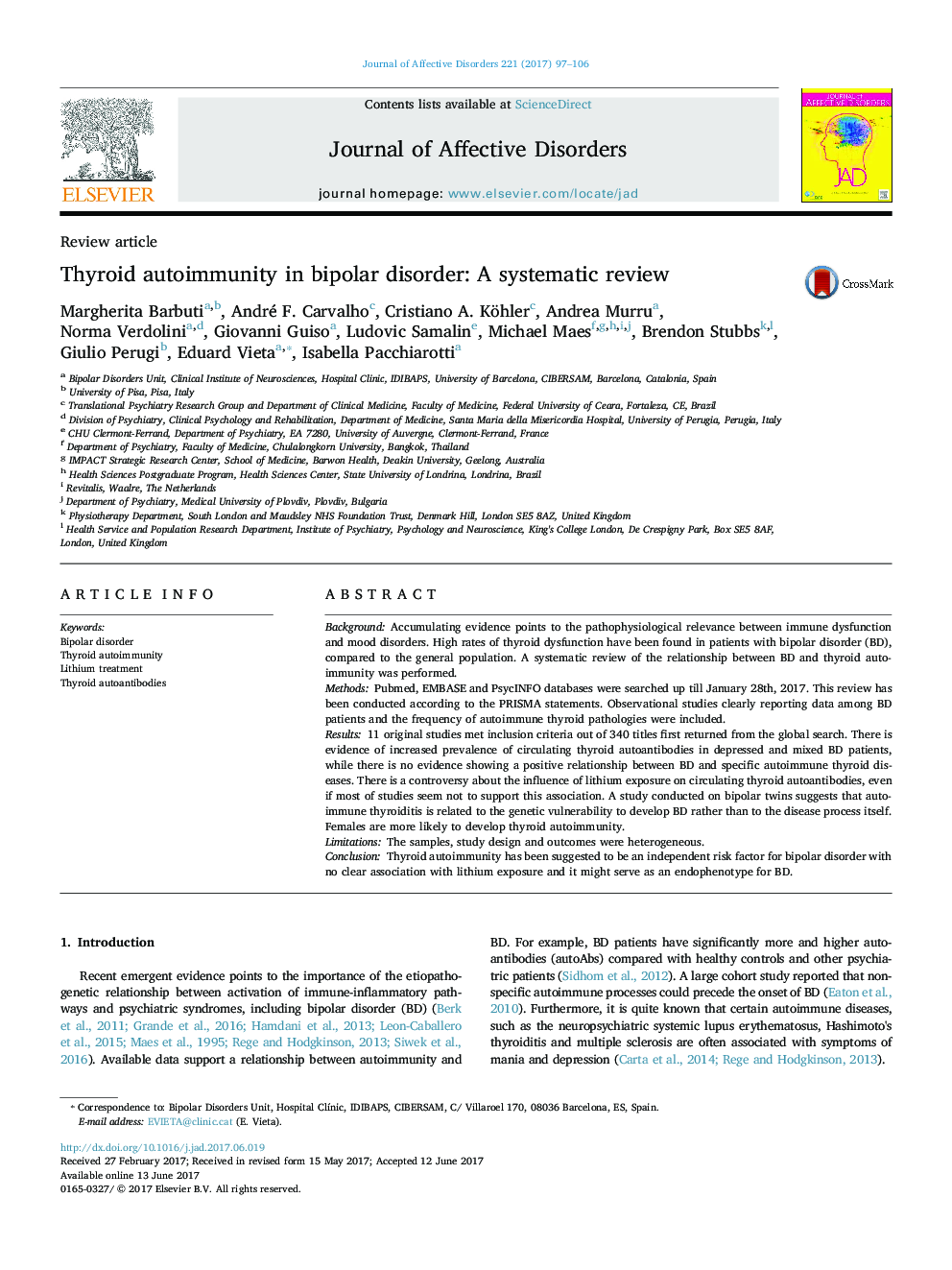| کد مقاله | کد نشریه | سال انتشار | مقاله انگلیسی | نسخه تمام متن |
|---|---|---|---|---|
| 5721996 | 1608104 | 2017 | 10 صفحه PDF | دانلود رایگان |
- There is an increased prevalence of thyroid autoantibodies in bipolar patients.
- The influence of lithium exposure on thyroid autoantibodies is still controversial.
- Thyroid autoimmunity seems to be related to the genetic vulnerability to develop BD.
- Thyroid autoantibodies could represent a marker of vulnerability for bipolar illness.
BackgroundAccumulating evidence points to the pathophysiological relevance between immune dysfunction and mood disorders. High rates of thyroid dysfunction have been found in patients with bipolar disorder (BD), compared to the general population. A systematic review of the relationship between BD and thyroid autoimmunity was performed.MethodsPubmed, EMBASE and PsycINFO databases were searched up till January 28th, 2017. This review has been conducted according to the PRISMA statements. Observational studies clearly reporting data among BD patients and the frequency of autoimmune thyroid pathologies were included.Results11 original studies met inclusion criteria out of 340 titles first returned from the global search. There is evidence of increased prevalence of circulating thyroid autoantibodies in depressed and mixed BD patients, while there is no evidence showing a positive relationship between BD and specific autoimmune thyroid diseases. There is a controversy about the influence of lithium exposure on circulating thyroid autoantibodies, even if most of studies seem not to support this association. A study conducted on bipolar twins suggests that autoimmune thyroiditis is related to the genetic vulnerability to develop BD rather than to the disease process itself. Females are more likely to develop thyroid autoimmunity.LimitationsThe samples, study design and outcomes were heterogeneous.ConclusionThyroid autoimmunity has been suggested to be an independent risk factor for bipolar disorder with no clear association with lithium exposure and it might serve as an endophenotype for BD.
Journal: Journal of Affective Disorders - Volume 221, 15 October 2017, Pages 97-106
